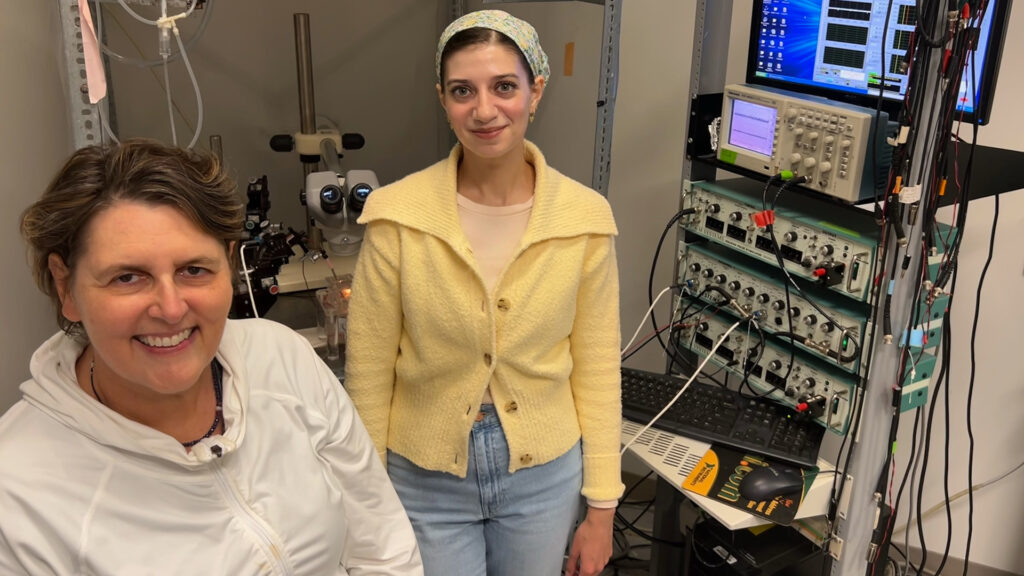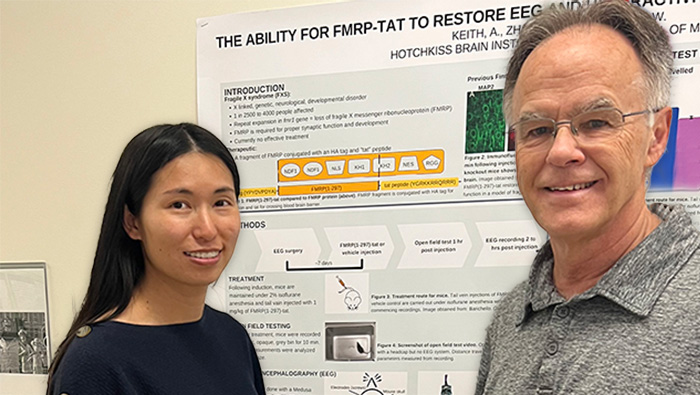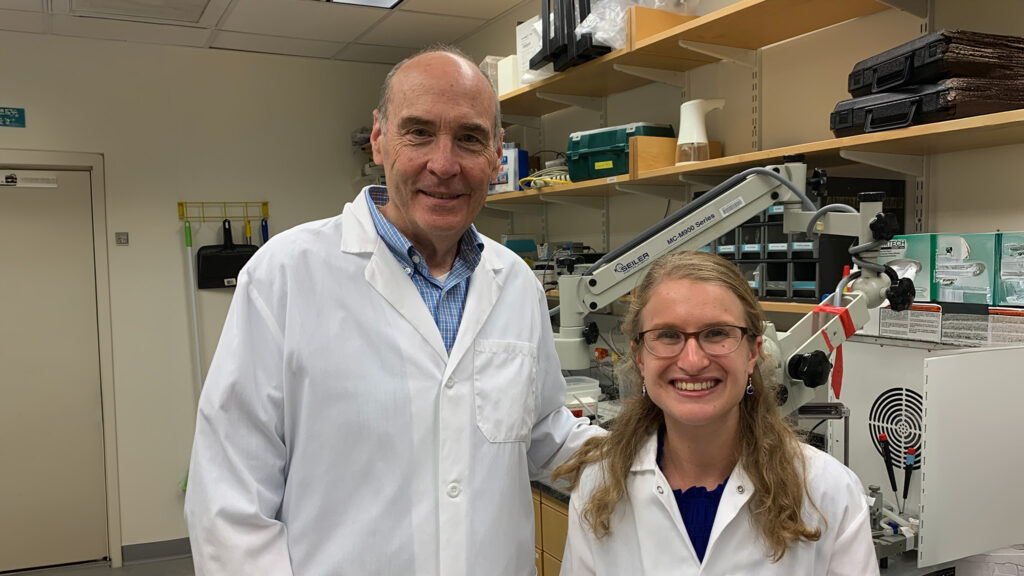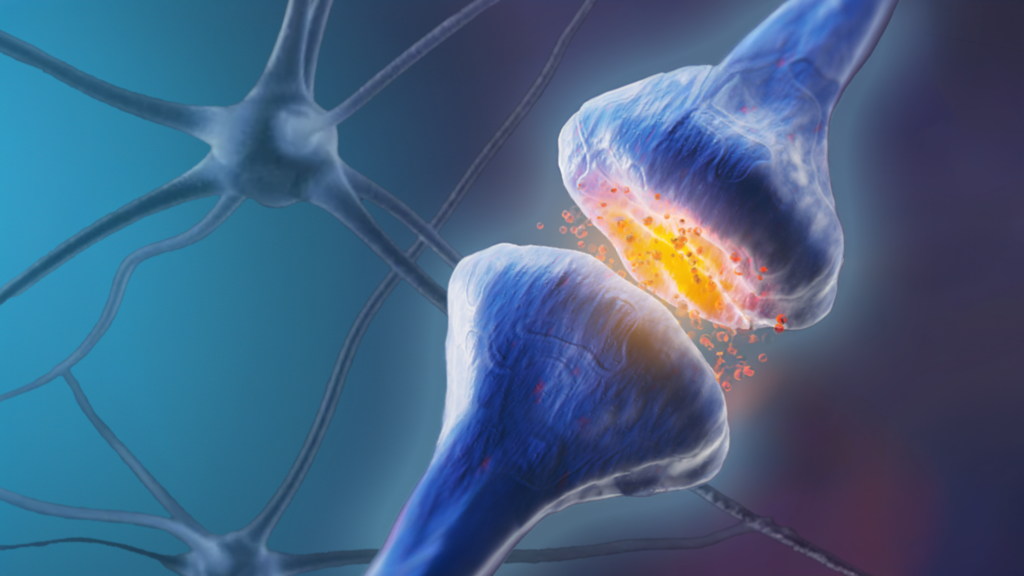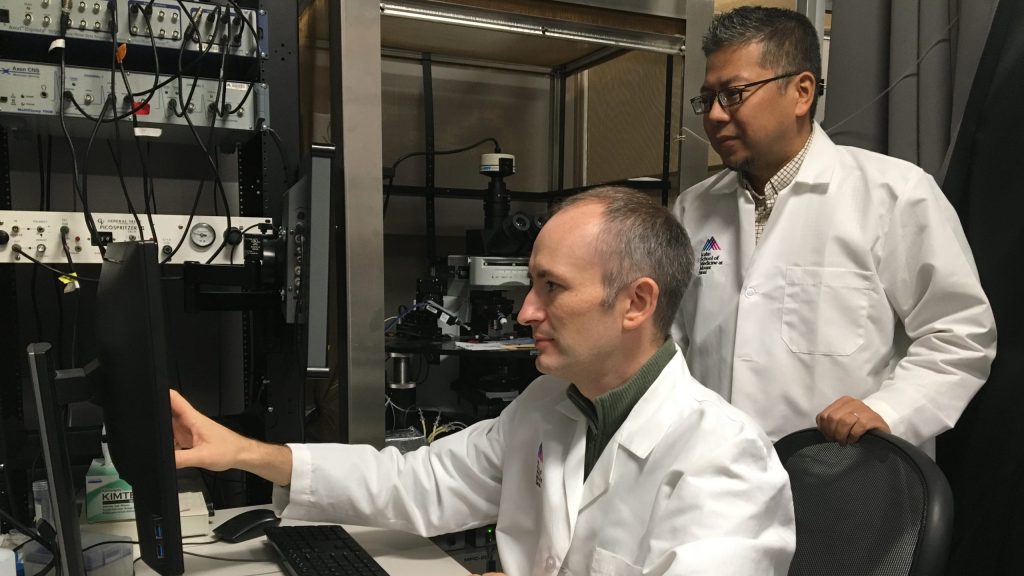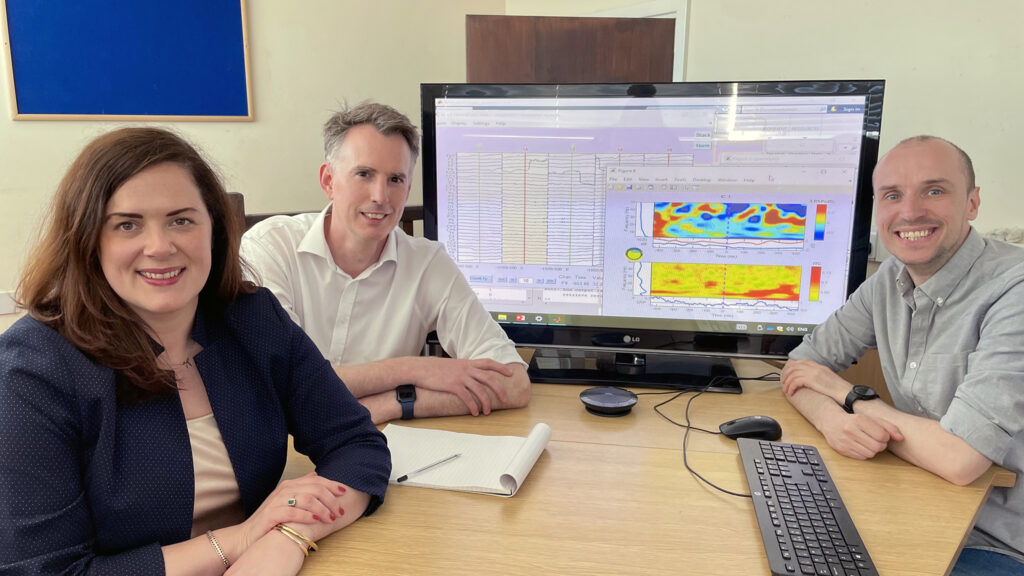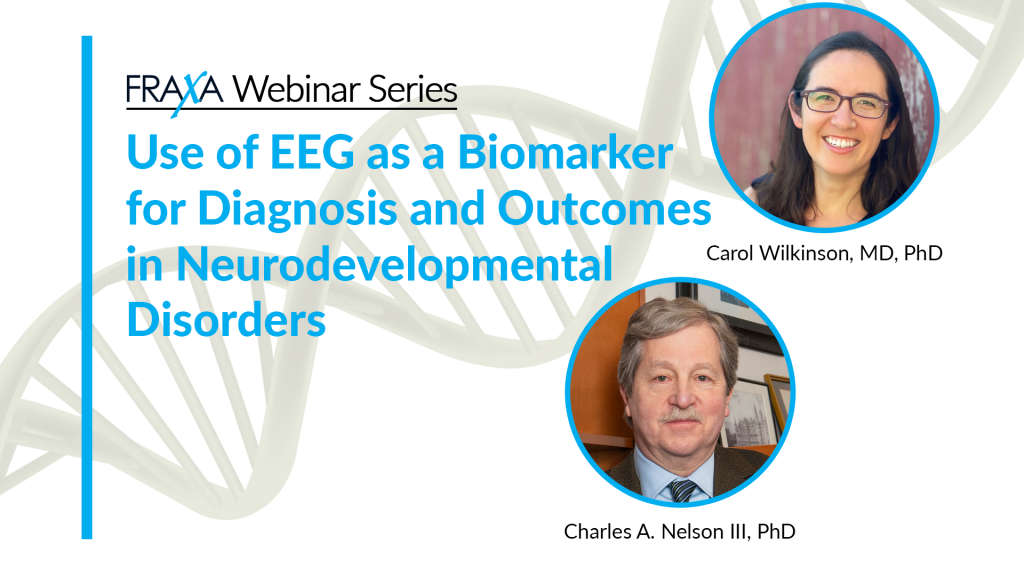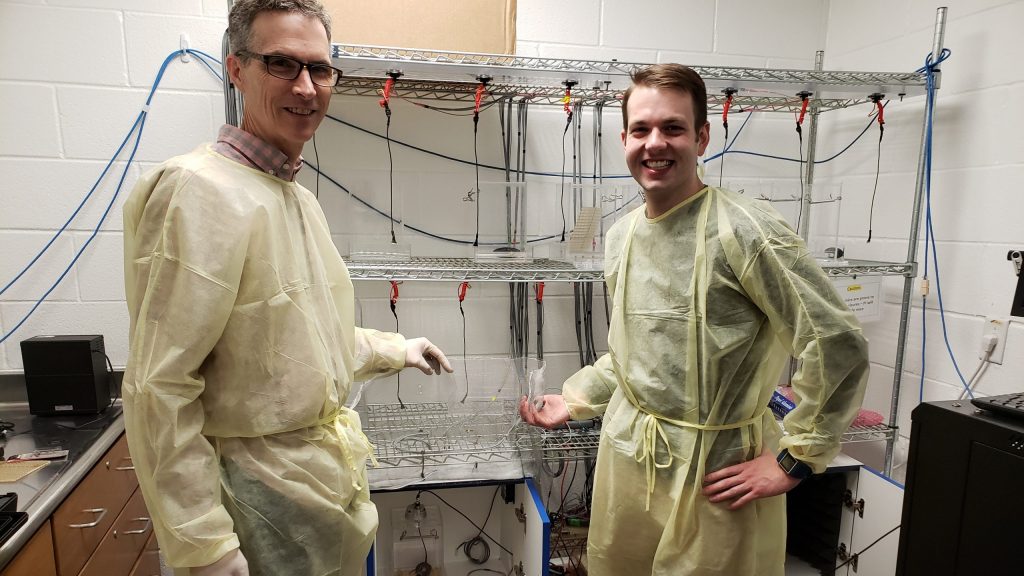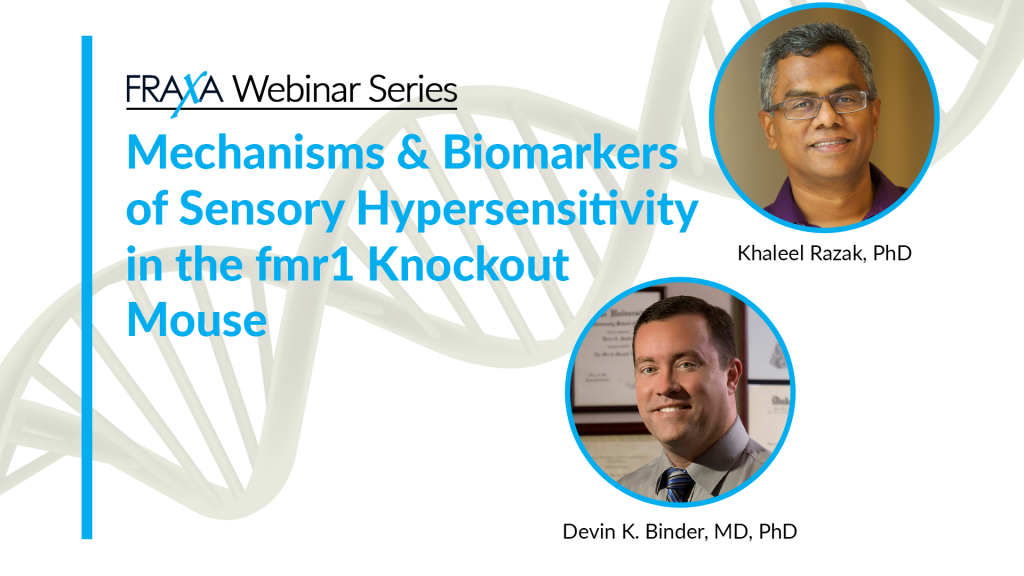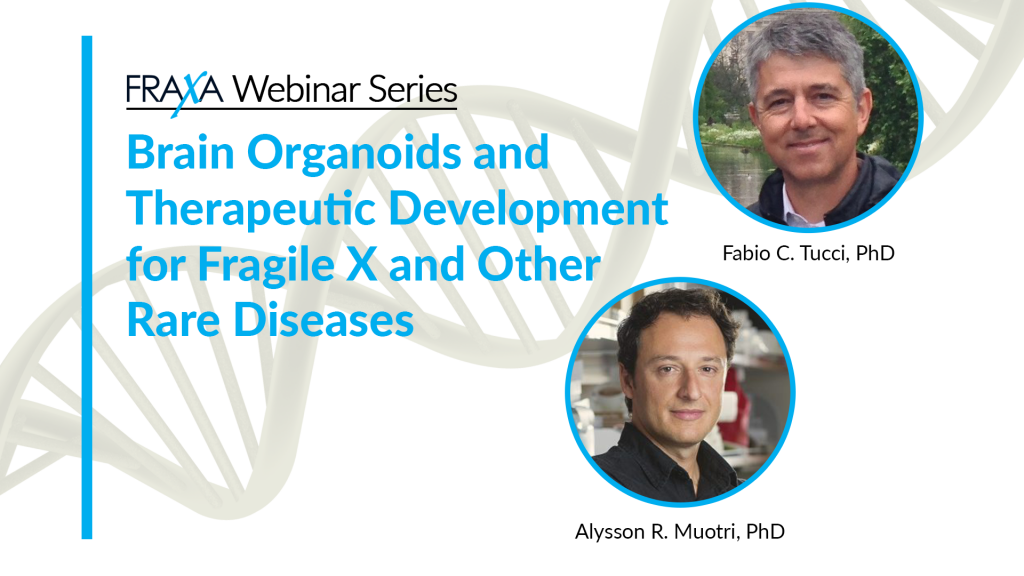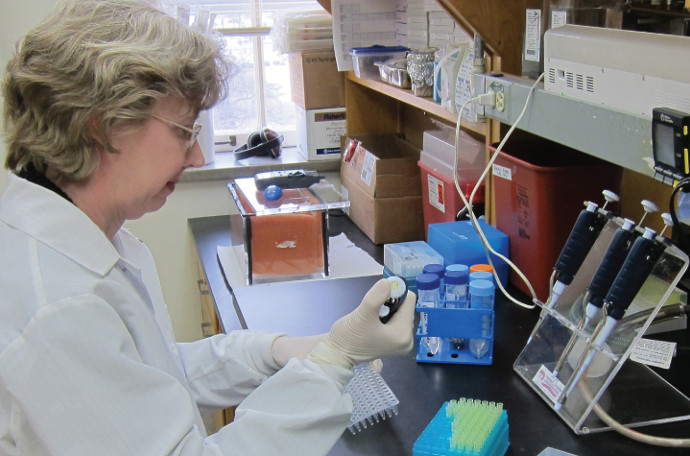Sex Differences and the Role of Estrogen Receptors in Fragile X
Fragile X syndrome researchers are studying how estrogen receptors shape brain activity and may explain why males and females experience symptoms differently.
A Tat-Conjugate Approach to Treat Fragile X Syndrome
Turner Lab’s innovative approach to treating Fragile X uses a Tat-linked, truncated FMRP protein designed to restore brain function by replacing the missing protein.
Advancing Curative Therapy for Fragile X Syndrome: Turner Lab Secures $1M Grant
Fragile X syndrome research accelerates as the Turner Lab secures $1M to expand FRAXA-funded work on curative therapy targeting the missing FMRP protein.
Clinical Study of Non-Invasive EEG for Children Ages 2-7
Dr. Carol Wilkinson, MD PhD at Boston Children’s Hospital recruited children ages 2-7 years with Fragile X syndrome to participate in a study of EEG.
Altered Physiology of Primary Visual Cortex in Fragile X Syndrome
This team believes inhibitory neurons expressing somatostatin are impaired in Fragile X. They will see if stimulating these neurons has therapeutic potential.
Fragile X Unplugged: Establishing Mobile EEG as the Next Frontier
A $100,000 FRAXA grant to Cincinnati Children’s Hospital is simplifying and testing EEG technology for home use, improving clinical trial accessibility and efficiency.
BK Channel Openers: A New Drug for Fragile X Is Ready for Clinical Trials
A promising new BK channel opener, SPG601 from Spinogenix, is entering clinical trials for Fragile X syndrome. Learn about its potential to restore synaptic function and address core symptoms.
Unveiling Probiotic Potential in Fragile X Syndrome Clinical Trial
First of its kind in Serbia, this clinical trial explores probiotic intervention as a potential treatment avenue for Fragile X syndrome.
Pharmacological Modulation of Nicotinic Signaling
This study tests whether blocking certain nicotine-sensitive receptors in the brain during adolescence can improve attention and cognition in Fragile X.
Somatosensory Processing as a Therapeutic Target for Fragile X Syndrome
FRAXA-funded researchers in Edinburgh assessed a noninvasive touch test that could be used for clinical trials in Fragile X syndrome.
Validating Novel Inhibitors of ERK Signalling to Treat Fragile X Syndrome
This team is testing ERK inhibitors — drugs that may calm overactive brain signaling in Fragile X. Early results in mice show strong benefits with minimal side effects.
Targeting Serotonin 1a Receptors to Reverse Neurobehavioral Phenotypes
Neurolixis’ new drug targets serotonin 1A receptors, showing promise in preclinical studies for Fragile X syndrome, funded by a FRAXA grant for future clinical trials.
Cannabinoids as a Treatment for Fragile X Syndrome
This team uses EEG to study sensory hypersensitivity in Fragile X. By testing drugs in mice, they aim to find treatments that calm brain overactivity.
2021 Fragile X Research Grants Funded by FRAXA Research Foundation
Each year, FRAXA funds a diverse portfolio of research. Our FRAXA Fellowships are seed funding for the future, the feedstock for the Fragile X treatment development pathway. While we are looking to promote as many promising new approaches as possible, prominent themes emerge each year, as scientists around the world tackle previously neglected areas.
Identifying Cellular and Molecular Signatures in Human Neurons That Distinguish Fragile X Syndrome Patients with Divergent EEG Profiles
Just as Fragile X affects individuals differently, medications do as well. This project aims to bring personalized medicine to Fragile X syndrome.
Integrating Human and Mouse Studies in Fragile X Syndrome – an NIH Center Approach
Presentations by Craig Erickson, Ernest Pedapati, Devin Binder, and Kimberly Huber about their research on Fragile X as part of their NIH Center of Excellence.
Overcoming the Placebo Effect in Fragile X Clinical Trials
In a placebo-controlled clinical trial, some participants are given an experimental medication, while others are given a placebo. Participants do not know whether they are taking medicine or placebo. In theory, this can allow researchers to rule out the placebo effect by comparing outcomes among the two groups. But, per Wexler (2020) “having a strong placebo effect can obscure any real effect of the therapy being investigated”.
Use of EEG as a Biomarker for Diagnosis and Outcomes in Neurodevelopmental Disorders
A series webinars focused on current topics in Fragile X research featuring Charles A. Nelson III, PhD, Professor at Harvard Medical School and Carol Wilkinson, MD, PhD, Instructor at Boston Children’s Hospital.
Healx Drug Repurposing Programme for Fragile X Syndrome
David Brown, MD, PhD, Ivan Angulo-Herrera, PhD and Anthony Hall of Healx present about the Drug Repurposing Programme for Fragile X syndrome.
Auditory System Dysfunction and Drug Tolerance in the Fragile X Mouse
A $90K FRAXA grant will help uncover why Fragile X causes sound hypersensitivity and test ways to correct brain circuit dysfunction linked to auditory overload.
Brain Organoids and Therapeutic Development for Fragile X and Other Rare Diseases
This is the first in a series of webinars focused on current topics in Fragile X research. In this webinar we hear from Alysson R. Muotri, PhD, Professor at University of California San Diego Stem Cell Programand Fabio C. Tucci, PhD, Chief Operating Officer and co-founder at Epigen Biosciences, Inc.
Ketogenic Diet Eases Symptoms in Fragile X Male Mice
Westmark Lab is studying sleep patterns in Fragile X mice, working with UW-Madison to develop tools that speed EEG data analysis

